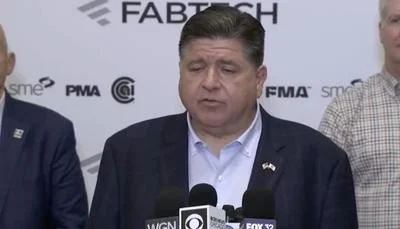Gov. J.B. Pritzker | Facebook
Gov. J.B. Pritzker | Facebook
Illinois lawmakers have snuck into debate a controversial bill that would mandate sexual education statewide.
“Meanwhile, over in #SenExec, they've started debating an amendment to SB5188, which would mandate age-appropriate sex education for all age levels. Currently, school districts can opt out — and most have. #twill,” the Pantagraph’s Brenden Moore said on Twitter.
As Moore reported on Twitter, the bill was included as an amendment to a so-called “shell bill.” Such a procedure allows for a bill to be completely hollowed out and filled in with whatever legislators choose.
“These ‘shell bills’ are used as vehicles at the end of the legislative session for larger items, like the budget, that often come down to the wire. It gives lawmakers flexibility. Perhaps too much. It's not uncommon for hundred-page amendments to drop at the last minute,” Moore said on Twitter.
The language in the amended bill appears to be derived from a bill filed in 2021.
The legislation comes after Democrats passed mandatory sexual education. In 2021, Gov. J.B. Pritzker signed a new sex education bill into law, SB 818, requiring all K-12 public schools in the state to align their sexual education curriculum with the National Sex Education Standards (NSES). The bill, which was implemented last August, sparked concern among some parents that their children were being taught gender identity ideology under the guise of sexual health.
Those standards were created by The Future of Sex Education Initiative (FoSE), an organization that endorses the notion that “not only are younger children able to discuss sexuality-related issues but that the early grades may, in fact, be the best time to introduce topics related to sexual orientation, gender identity and expression, gender equality, and social justice related to the LGBTQ community before hetero- and cisnormative values and assumptions become more deeply ingrained and less mutable.”
The previous sexual education bill signed by Pritzker allowed for districts to opt out. It is unclear if that is the case with the new legislation.






 Alerts Sign-up
Alerts Sign-up